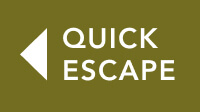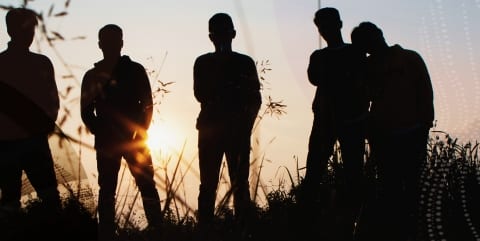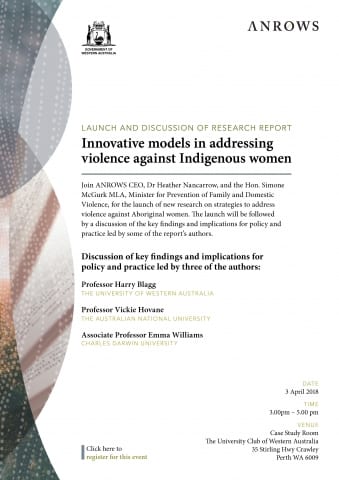
ANROWS
Aboriginal and/or Torres Strait Islander Culturally and linguistically diverse Disability Economic security Research Economic abuse COVID-19 Elder abuseWebinar: Understanding economic and financial abuse
-
1:00 pm - 2:30 pm, Monday, 15th November 2021 - Monday, 15th November 2021
-
Webinar - AEDT
The COVID-19 pandemic has highlighted the economic insecurity experienced by women who are victims and survivors of domestic and family violence (DFV); the economic costs of DFV, both for women and at a societal level; and the scourge of financial and economic abuse.
Financial abuse is an underreported aspect of DFV. It can have devastating consequences for women, often lasting for decades.
The Commonwealth Bank of Australia (CommBank) has partnered with the University of New South Wales Gendered Violence Research Network (GVRN) through its CommBank Next Chapter program to develop a research series exploring current knowledge of financial abuse in Australia.
This webinar unpacks the research findings and builds community, sector and industry understanding of this important issue.
The discussion is facilitated by Padma Raman PSM (ANROWS) with:
- Professor Jan Breckenridge, Head of the School of Social Sciences and Co-Convenor of the Gendered Violence Research Network, UNSW
- Dixie Link-Gordon, Senior Community Access Officer, First Nations Women’s Legal Program, Women’s Legal Service NSW
- Heidi La Paglia, Director of Policy and Programs, Women with Disabilities Australia
- Juliana Nkrumah AM, Program Manager — Domestic & Family Violence, Settlement Services International
- Robert Fitzgerald AM, NSW Ageing and Disability Commissioner
The panel discussion provides guidance for policy and practice across government, business and industry to respond to the prevalence of financial abuse within the context of DFV.
The recording of the webinar is now available to watch below.
Enquiries: rachel.pow@www.anrows.org.au and janice.yeung@www.anrows.org.au
Disclaimer: ANROWS webinars bring together a diverse range of speakers on a particular topic, informed by the evidence base, lived expertise, and policy and practice knowledge. The views expressed by speakers or other third parties in ANROWS webinars and any subsequent materials are those of the speaker or third party and not, necessarily, of ANROWS.
WATCH
Presenters
Professor Jan Breckenridge
Professor Jan Breckenridge is Head of the School of Social Sciences and Co-Convener of the UNSW Gendered Violence Research Network. She is also a research fellow of the UNSW Australian Human Rights Institute (AHRI). Jan has undertaken extensive work and research in the areas of gendered violence. Select research areas include domestic, family and sexual violence and workplace responses; economic and financial abuse; and homelessness and the potential of safe-at-home programs for women and children affected by domestic and family violence. Jan’s research is oriented towards maximum impact in innovative social policy development, service provision and outcome measurement of effectiveness.
Juliana Nkrumah AM
Juliana Nkrumah AM is the Domestic Violence Program Manager at Settlement Services International. Juliana founded African Women Australia and has served on several boards to improve the status of women, including the Board of YWCA NSW, Australian National Committee on Refugee Women, Act for Peace, African Ministerial Committee, and the Eminent Australians Committee to review the Australian Citizenship Test. Juliana was awarded Membership of the Order of Australia for her work in the community, and was the winner of Woman of the West from the University of Western Sydney in 2007.
Dixie Link-Gordon
Dixie is a proud Gurang Gurang woman from south-east Queensland. Having moved to the inner Sydney suburb of Redfern in 1980, Dixie has earned the respect of the local and broader Indigenous community through her work as a domestic violence community educator and advocate across New South Wales and Australia. Dixie is a strong advocate for Indigenous women and families and was the Founding CEO Member of the Mudgin-gal Aboriginal Women’s Corporation. Dixie currently works at Women’s Legal Service NSW as the Senior Community Access Officer, Indigenous Women’s Legal Program. A recognised leader in the Aboriginal and Torres Strait Islander Community, Dixie has received awards and accolades for her work in delivering culturally appropriate services and improving outcomes for Aboriginal and Torres Strait Islander people.
Robert Fitzgerald AM
Robert Fitzgerald AM is the NSW Ageing and Disability Commissioner. His agency is tasked with preventing and responding to abuse, neglect and exploitation of older people and adults with disability in New South Wales. Robert, a lawyer by profession, has served in numerous public roles including as a Royal Commissioner, Productivity Commissioner and a Deputy Ombudsman in NSW.
Heidi La Paglia
Heidi La Paglia is a woman with disability from Hobart, Tasmania, who has worked at Women With Disabilities Australia (WWDA) for a number of years and currently manages WWDA’s policy and project work. Heidi represents WWDA on a number advisory groups with sector stakeholders. Among other issues, Heidi has a strong interest in ensuring that efforts to support the safety and reproductive rights of women are inclusive of people with disability. Heidi previously completed Bachelor of Arts, Bachelor of Philosophy and Arts Honours degrees at the University of Tasmania.
Facilitated by:
Padma Raman PSM
Padma Raman has a wealth of experience as a senior executive at both the state and federal level, and in 2018 was awarded the Public Service Medal for outstanding service leading significant cultural, technological and governance change. Before starting as CEO of ANROWS, she was the Chief Executive of the Australian Human Rights Commission for 11 years. Prior to that she established and was CEO of the Victorian Law Reform Commission for nine years. During that time, Ms Raman was a member of the Victorian Equal Opportunity and Human Rights Commission and was instrumental in assisting the Victorian Government develop and implement the Victorian Charter of Human Rights and Responsibilities Act 2006.




